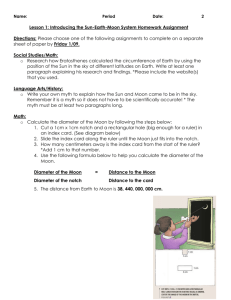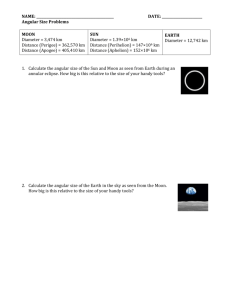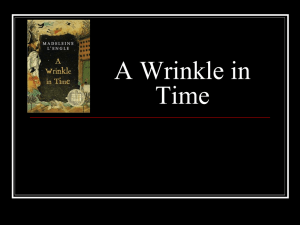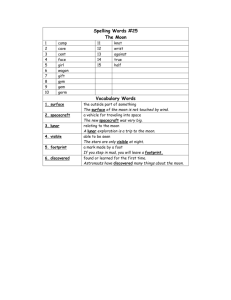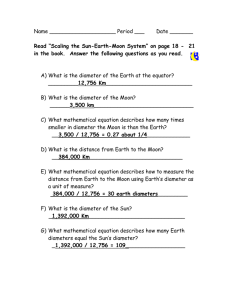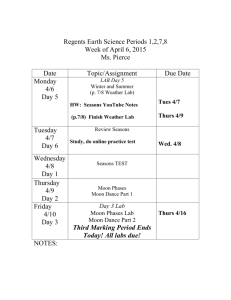AST 301 Homework #1 Due Friday Jan. 28 1. This weekend the
advertisement
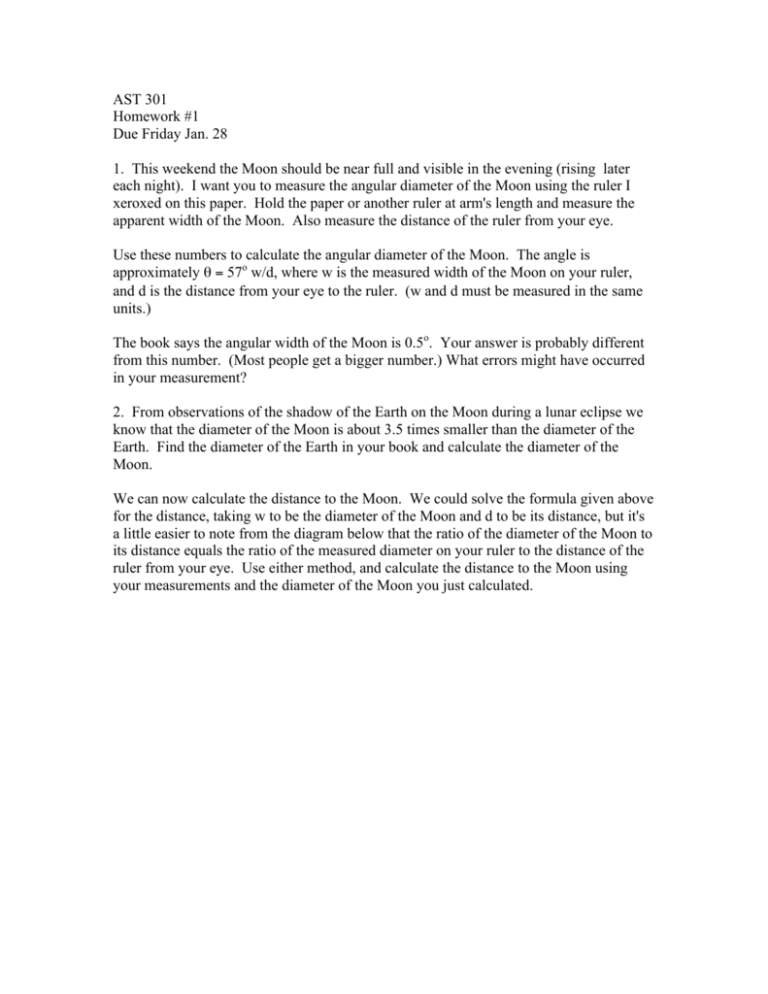
AST 301 Homework #1 Due Friday Jan. 28 1. This weekend the Moon should be near full and visible in the evening (rising later each night). I want you to measure the angular diameter of the Moon using the ruler I xeroxed on this paper. Hold the paper or another ruler at arm's length and measure the apparent width of the Moon. Also measure the distance of the ruler from your eye. Use these numbers to calculate the angular diameter of the Moon. The angle is approximately θ = 57o w/d, where w is the measured width of the Moon on your ruler, and d is the distance from your eye to the ruler. (w and d must be measured in the same units.) The book says the angular width of the Moon is 0.5o. Your answer is probably different from this number. (Most people get a bigger number.) What errors might have occurred in your measurement? 2. From observations of the shadow of the Earth on the Moon during a lunar eclipse we know that the diameter of the Moon is about 3.5 times smaller than the diameter of the Earth. Find the diameter of the Earth in your book and calculate the diameter of the Moon. We can now calculate the distance to the Moon. We could solve the formula given above for the distance, taking w to be the diameter of the Moon and d to be its distance, but it's a little easier to note from the diagram below that the ratio of the diameter of the Moon to its distance equals the ratio of the measured diameter on your ruler to the distance of the ruler from your eye. Use either method, and calculate the distance to the Moon using your measurements and the diameter of the Moon you just calculated.
